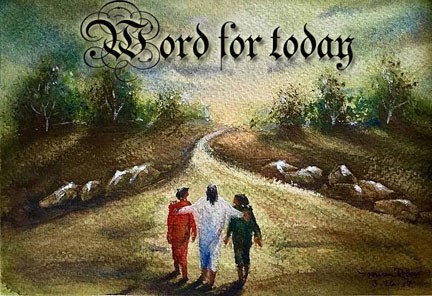Watch
Events
Articles
Market
More
A #chiasm in #deuteronomy 22:13-29 equates betrothal with marriage. In God's eyes, it is just as bad to violate a betrothal as it is to violate a consummated marriage. Both cases are adultery. A betrothed girl has more legal protection in #torah than does an unbetrothed girl. Fathers do well to keep this in mind.
#kitetzei #biblepatterns
https://soilfromstone.blogspot.....com/2021/08/chiasm-



A friend at Bible study brought out this thought, too:
If Yeshua/Jesus is saying to the Pharisees that "unwashed hands aren't a big deal", but then turns around to the disciples and says "oh by the way, it doesn't matter what you eat", that would be Him sinning AND would give the Pharisees the proof they were trying to get on Him all through the Gospels that He was a sinner.
We even see with Peter in Acts 10, many years after this event, telling God that he NEVER has eating anything unclean. If Yeshua was telling the disciples "it doesn't matter what you eat", then why would Peter for so long still not eat things that aren't Biblically considered food?
An argument I have heard before is: He's God, He can change what He wants.
Something I've asked in other comics: If God can change what sin is, how do we know He won't change it again?
https://thestraightandnarrow.cfw.me/comics/834
#bible #bibleverse #bibleverseimages #biblestudy #biblestudynotes #church #christian #webcomic #webcomicseries #cartoon



A friend of mine put together a great presentation showing the Septuagint, the Greek Old Testament dated from 200 BC, as the basis for the New Testament. This is very "common sensy" and corrects some doctrines we all probably hold.
https://firstcenturychristiani....ty.net/wp-content/up



A friend of mine put together a great presentation showing the Septuagint, the Greek Old Testament dated from 200 BC, as the basis for the New Testament. This is very "common sensy" and corrects some doctrines we all probably hold.
https://firstcenturychristiani....ty.net/wp-content/up



New episode 10:00 Eastern time, Faith Is Not Blind. Listen where you get your favorite podcasts, use the player on our homepage or here https://www.spreaker.com/show/....give-god-90-episode- With a free account you can join the chat or leave a message, please consider liking and sharing these podcasts.




090924
WORD FOR TODAY “treasure”: Luk 12:34 "For where your treasure is, there your heart will be also.
SPOKEN VERSE FOR TODAY: Pro 21:2 Every man's way is right in his own eyes, But the LORD weighs the hearts.
“Faith comes by hearing” positive frequencies spoken out loud hourly.
www.BGMCTV.org



